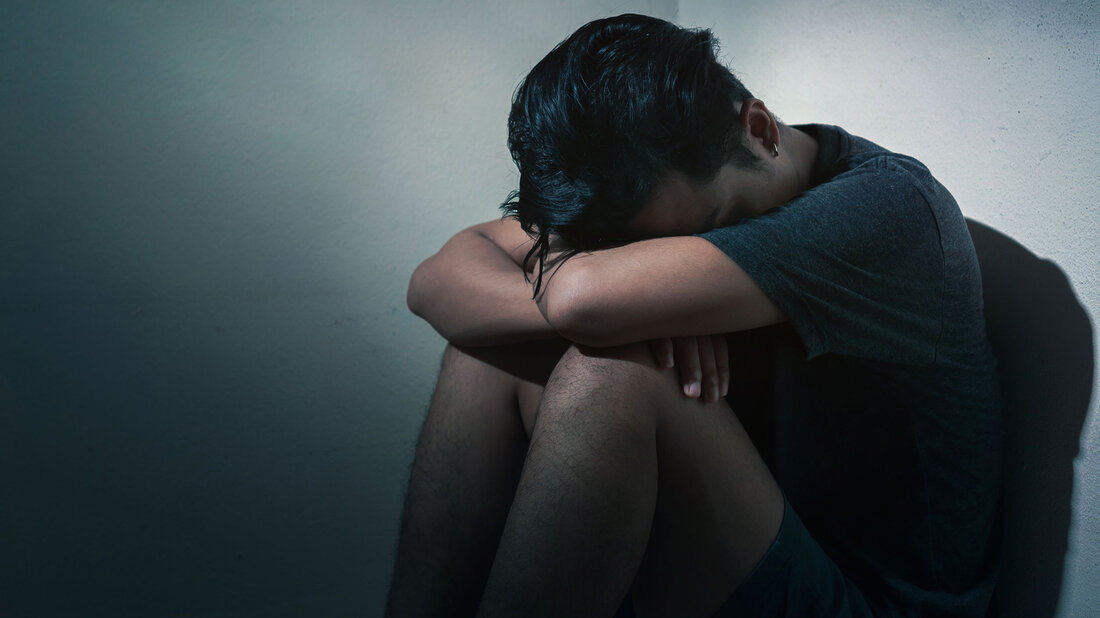11 Signs You're Falling Into Depression
Depression (depressive disorder or clinical depression) is a condition of low mood and aversion to activities that can affect a person's behavior, feelings and well-being. It causes severe symptoms that affect how you feel, think, and handle daily activities. Most people feel anxious or depressed at times due to situations in their lives. However, a prolonged state of depression can lead to severity. According to research, an estimated 19 million American adults live with major depression. However, you don't have to use medication to overcome depression. If you experience several of the following symptoms for at least 2 weeks...

11 Signs You're Falling Into Depression
Depression (depressive disorder or clinical depression) is a condition of low mood and aversion to activities that can affect a person's behavior, feelings and well-being. It causes severe symptoms that affect how you feel, think, and handle daily activities. Most people feel anxious or depressed at times due to situations in their lives. However, a prolonged state of depression can lead to severity. According to research, an estimated 19 million American adults live with major depression. However, you don't have to use medication to overcome depression.
If you experience several of the following symptoms for at least 2 weeks, it may indicate depression:
1. Loss of interest in daily activities.
You no longer care much about social activities, your hobbies, and pretty much everything your life was about. Nothing brings you joy or pleasure.
2. Feeling of helplessness and hopelessness.
The feeling that nothing will give. Nothing will ever get better and all hope is lost. The bad situation seems to remain and there is nothing you can do to improve the situation.
3. Self-hatred.
They persistently criticize themselves for perceived mistakes and past mistakes. You don't value yourself and feel solely responsible for the situation you find yourself in.
4. Energy loss.
Completing even the smallest tasks proves to be tiring. Feeling tired and physically drained most of the time can indicate depression. The daily activities you participate in take longer due to fatigue.
5. A problem concentrating.
Focusing and engaging with your surroundings becomes a problem. This ultimately leads to difficulty making decisions and remembering things. Difficulty concentrating can lead to withdrawal in depressed people.
6. Changes in sleep.
This involves a drastic change in your sleep pattern (insomnia or oversleeping). You either have trouble sleeping or have difficulty sleeping. changes in your sleep patterns; feeling sleepy if you normally wake up at that particular time. These symptoms lead to fatigue, which can worsen additional symptoms of depression.
7. Fear.
Fear is a feeling of impending doom, even when there is no legitimate reason. Depression causes anxiety; be tense for no apparent reason or apparent threat.
8. Irritability.
Even with small or insignificant problems, it is easy to become frustrated or upset. Irritability varies from individual to individual. There is also a difference in how men and women display irritability, with some becoming aggressive or volatile, particularly in men. Women, on the other hand, feel angry one moment and tearful the next.
9. Withdrawal.
Many people exclude themselves from the world. Some lock themselves in their bedrooms or homes and cut off physical contact with family and friends. They can live in isolation for a significant period of time, extending into weeks.
10. Suicidal thoughts.
Considering suicide is a serious sign that your depression has escalated. This should be resolved immediately. See a doctor for mental health care. Family members and friends should take immediate action if a loved one shows signs of self-harm. You can do this by; Call 911, stay with the person until help arrives, and move anything harmful out of the way. Call the National Suicide Prevention Lifeline.
11. Physical pain
Increased discomfort due to physical symptoms such as back pain, digestive problems and headaches occur. This also applies to younger children. The good news is that no matter how bad the situation feels, you can always do better. Learning about depression and the different ways to overcome depression is the first step to getting through it. Understanding depression and having the will to overcome it is a sure win.
Inspired by Benjamin K Muchuiri

 Suche
Suche
 Mein Konto
Mein Konto
